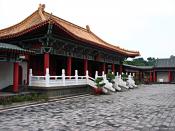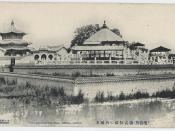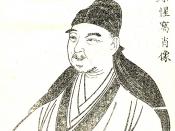Silhak in Late Choson Dynasty
HSTAS 481
February 26, 2010
Da Som Lee
# 0827350
Without a doubt, Neo-Confucianism was a dominant ideology that prevailed throughout the Choson dynasty, but its weight and role fluctuated and varied throughout the 500-year history of the dynasty, in accordance with changing historical atmosphere. Neo-Confucian ideology was extensively popular and widespread until the late sixteenth century, during which Choson had to encounter the serious social and economical hardships due to Hideyoshi(also called Imjin War) and Manchu invasions from 1592 to 1637. As a matter of fact, from the seventeenth century, as Neo-Confucian statesmen refused to actively face the current socio-economic problems, the growing grievances among the population and the deteriorating situations provided an opportunity to reexamine the role of Neo-Confucianism as the dominant ideology. Because of the immediate need to alleviate the terrible sufferings from the aftermath of the foreign invasions, many political leaders started to concentrate more on the Neo-Confucian approach to justice and socio-economic matters than to philosophical issues.
But, there were so many disagreements on making decisions such as the Law of Uniform tax, or military service obligation, that it was almost impossible to bring a dramatic change. In addition, succession struggles of Kingship as well as massive palace constructions caused even more grief and a loss of public support. In response to the failure of Neo-Confucianism to successfully deal with the changes and Choson on the verge of bankruptcy, a new school of Practical Learning (Silhak) arose in an attempt to resolve this situation. At this time, the Choson dynasty faced with two possibilities; the first was to maintain sadae(serving a bigger state) relationship with destroyed Ming China it had served, and the other was to abandon the moral ties with China and establish a new ethnic...


